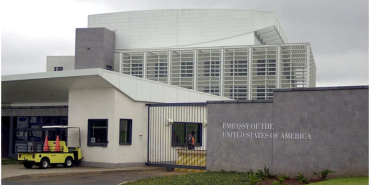37,000 Caregivers Left in Limbo as Canada Delays Immigration Program Launch

A significant number of foreign caregivers and support workers in Canada are facing uncertainty as the federal government delays the introduction of new pathways to permanent residency.
The Home Child Care Provider and Home Support Worker pilot programs, which had previously allowed overseas workers to enter Canada on temporary work permits since 2019, ceased operations in June. In response to this halt, the federal government announced plans for new pilot programs; however, these initiatives have yet to be launched. Immigration, Refugees and Citizenship Canada (IRCC) has justified the postponement, citing the need to address a backlog of permanent residency applications stemming from the previous programs before new ones can be implemented.
Full details regarding eligibility criteria and application processes for the anticipated programs are expected to be released in the upcoming months, as indicated by an IRCC statement issued in December. The delays have left many foreign workers, including Teresa Andrade, in a precarious position. Andrade has worked as a live-in caregiver in Toronto for over five years. After her temporary work permit expired in October and her application for permanent residency through the former pilot was rejected, Andrade has been left awaiting the launch of the new program for reapplication.
Without a valid work permit, she is now navigating immigration rules on a visitor visa, which also expired in October, casting doubt on her future in Canada. Advocates for migrant workers have voiced concerns regarding the government's management of immigrant caregivers, highlighting the extended wait times for permanent residency that often confine workers to low-wage employment for years. The majority of those affected by these delays are women, many of whom remain separated from their families until their residency status is secure.
Despite the challenges posed by the government's aim to reduce temporary worker numbers amid rising housing costs and heightened demands on healthcare services—targeting a reduction to 5 percent of the population by 2026 from the current 7 percent—the demand for caregivers in Canada remains high due to the country's ageing population. The ongoing delay in establishing the new pilot programs exacerbates the already substantial backlog, which includes nearly 37,000 applicants waiting for permanent residency.
Under its 2025-27 Immigration Levels plan, the government has allocated only 10,200 permanent residency spots for these pilots, in addition to the Agri-Food pilot, further complicating the situation. Gabriela, a recent graduate from Sault College in Toronto, expresses her aspiration to apply for permanent residency through the Canadian Experience Class (CEC) program. However, increased policy thresholds have rendered her ineligible for this option.
With her work permit expiring this month, Gabriela now turns her hopes toward the new caregiver pilot programs, which remain uncertain, facing the prospect of returning to the Philippines. A report from the Canadian Centre for Policy Alternatives underscores a significant imbalance between application limits for caregiver pilots and the volume of applications received.
Between January 2019 and January 2023, the IRCC logged 37,568 applications for the Home Child Care Provider and Home Support Worker pilots but only granted 2,581 approvals by March 2023. With processing times for these programs extending up to 34 months—significantly longer than other immigration pathways—the delay in rolling out new initiatives leaves caregivers like Andrade and Gabriela awaiting crucial decisions.














Add new comment